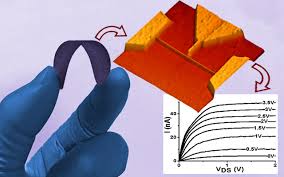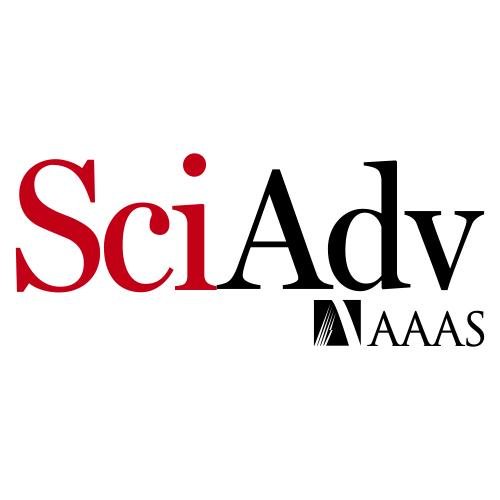 Researchers from the Martinez Research Group in the Department of Biomedical Engineering at Purdue University have shown how standard inkjet-printers can be employed to produce flexible electronic circuits from liquid-metal nanoparticle inks. These elastic technologies could revolutionize medicine by making possible a new class of pliable robots and stretchable garments that people might wear for therapeutic purposes. Read more about the research recently published in Advance Materials.
Researchers from the Martinez Research Group in the Department of Biomedical Engineering at Purdue University have shown how standard inkjet-printers can be employed to produce flexible electronic circuits from liquid-metal nanoparticle inks. These elastic technologies could revolutionize medicine by making possible a new class of pliable robots and stretchable garments that people might wear for therapeutic purposes. Read more about the research recently published in Advance Materials.
Science Advances Now Available
 Science Advances is the offspring of Science, created by the opportunities and imperatives of digital, open access publishing. As AAAS’ first open access online-only journal, Science Advances will:
Science Advances is the offspring of Science, created by the opportunities and imperatives of digital, open access publishing. As AAAS’ first open access online-only journal, Science Advances will:
- Publish significant, innovative original research.
- Publish in a broad array of fields including computer, engineering, environmental, life, mathematical, physical, and social sciences.
- Publish quickly to allow new science to be rapidly distributed, discussed, and built upon.
- Promote and exemplify concise, readable prose that will allow scientific findings to be understood by a broad range of readers.
- Publish cross-disciplinary research and collaborations, to encourage innovative approaches to complex scientific and social problems, and support open discourse among readers in diverse areas of interest and expertise.
- Promote and uphold the highest standards in the conduct and communication of scientific research.
Authors interested in publishing with the journal will find more information here.
Science Advances may be accessed through the Library’s Journal A-Z list.
HHMI’s New Program to Support Early-Career Scientists
Howard Huges Medical Institute recently announced its new Faculty Scholars Program, a national competition that aims to strengthen the community of basic researchers and physician scientists who bring innovative approaches to the study of biological problems.
The program is a collaborative initiative of HHMI, the Bill & Melinda Gates Foundation and the Simons Foundation, and is expected to award up to 70 five-year grants, ranging from $100,000 to $400,000 per year. Scholars will apply molecular, genetic, computational and theoretical approaches to fundamental problems in diverse areas of biology, and will be required to devote at least 50 percent of their total effort to the direct conduct of research.
Applications are being accepted online until July 28, 2015, 3pm (ET). For more information, see the FAQ and other documents available on the program’s website.